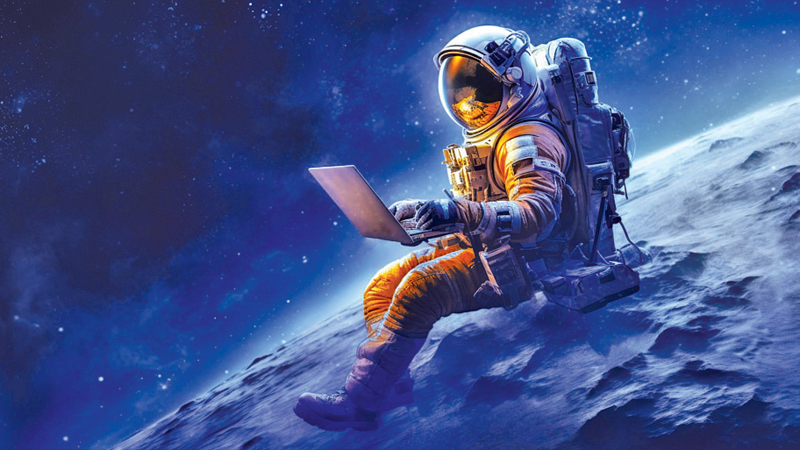Have you ever looked up at the night sky and wondered what’s out there? Beyond the twinkling stars, planets and our own moon lies a vast and my sterious universe. Space exploration is our way of discovering what exists beyond Earth, and it’s one of the most exciting adventures humans have ever embarked on.
Beginning of space exploration
 It all began in 1957 when the Soviet Union launched the first satellite, Sputnik 1, into space. This small, beeping satellite sparked the beginning of the space race and showed us that leaving Earth’s atmosphere was possible. Not long after, the first human, Yuri Gagarin, orbited the Earth in 1961, followed by astronauts from all over the world.
It all began in 1957 when the Soviet Union launched the first satellite, Sputnik 1, into space. This small, beeping satellite sparked the beginning of the space race and showed us that leaving Earth’s atmosphere was possible. Not long after, the first human, Yuri Gagarin, orbited the Earth in 1961, followed by astronauts from all over the world.
Perhaps the most famous mission of all was in 1969 when Neil Armstrong became the first person to walk on the moon during the Apollo 11 mission. His words, “That’s one small step for man, one giant leap for mankind,” still inspire people today.
Why explore space?
Why go through all the trouble to explore space? Space exploration helps us learn more about the universe, but it also teaches us important things about Earth. For example, astronauts study how space affects their bodies, and this research helps improve healthcare on our planet.
Discovering new planets, stars and galaxies can help us understand where Earth fits into the grand universe. Space exploration also gives us ideas for how we might live on other planets in the future. Who knows? One day you might be able to visit Mars.
Robots and rovers
 Exploring space isn’t just for astronauts. Robots and rovers play a big part in space exploration.
Exploring space isn’t just for astronauts. Robots and rovers play a big part in space exploration.
The Mars rovers, such as Perseverance and Curiosity, are specially designed robots that roam the surface of Mars.
They collect important information about the planet’s rocks, soil and atmosphere. Scientists hope that this will help answer one of the biggest questions: Was there ever life on Mars?
Future of space travel
What does the future of space exploration look like? Right now, countries and companies around the world are building new rockets and spacecrafts. Space tourism might become a reality soon, allowing people like you to travel to space.
There’s also talk of setting up a base on the moon or even colonising Mars.
So, next time you gaze at the stars, remember that humans have already made incredible discoveries, but there’s so much more to learn.
Who knows? You could be the next astronaut to take that giant leap for mankind.
Keep dreaming, and one day, you might explore the stars yourself.




